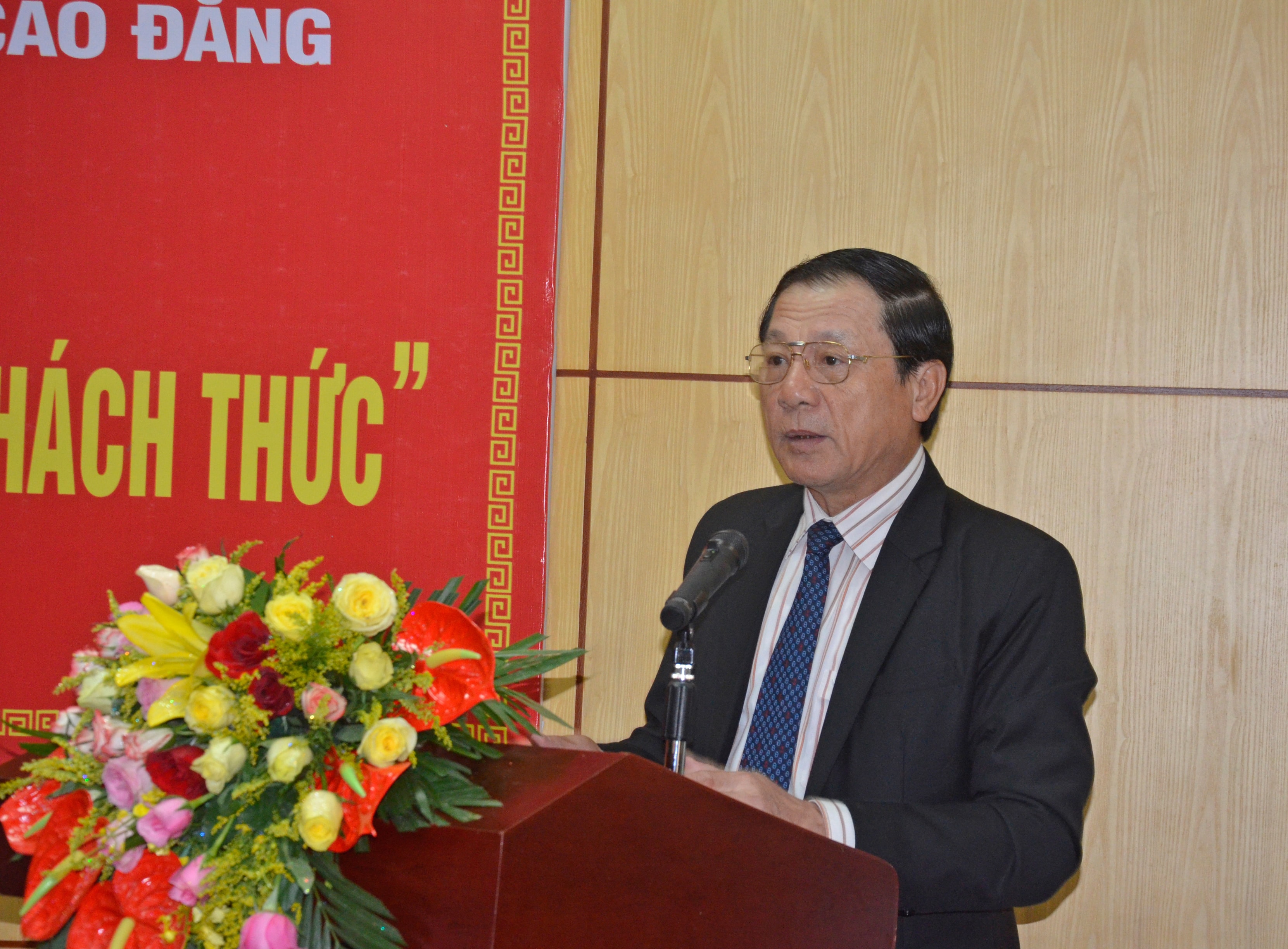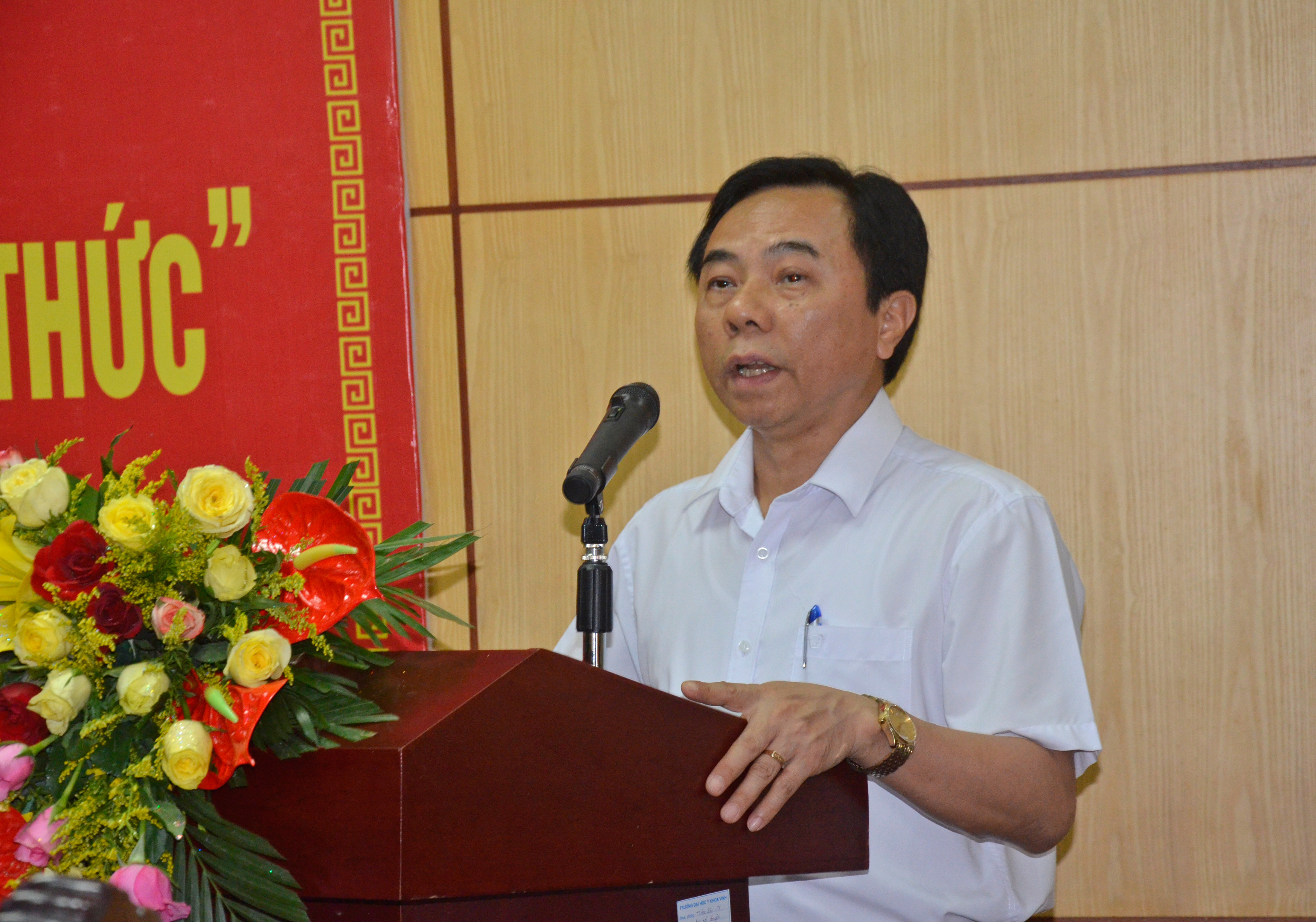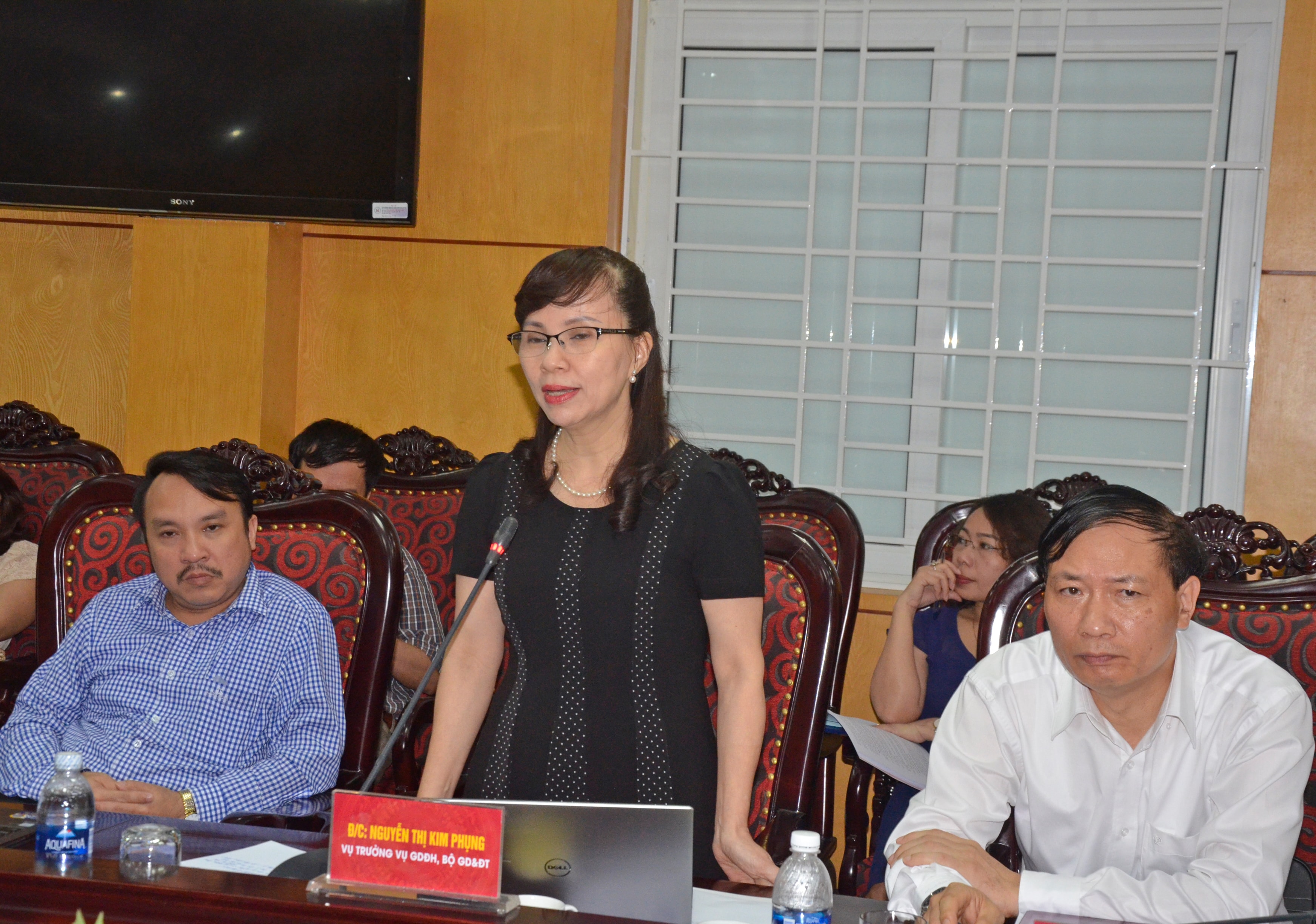University and college autonomy mechanism - opportunities and challenges
(Baonghean.vn) - "University and college autonomy mechanism - opportunities and challenges" is the topic of the workshop organized by the Emulation Bloc of universities and colleges at Vinh Medical University on the morning of May 5.
Attending the workshop were comrades: Nguyen Thi Kim Phung - Director of the Department of Higher Education, Ministry of Education and Training; Thai Quang Toan - Director of the Department of Organization and Personnel, Ministry of Home Affairs.
On the side of Nghe An province, there were comrade Le Minh Thong - Member of the Provincial Party Standing Committee, Vice Chairman of the Provincial People's Committee; leaders of universities and colleges in the province.
 |
| Vice Chairman of the Provincial People's Committee Le Minh Thong spoke at the workshop. Photo: Thanh Le |
The workshop pointed out: Autonomy is an inevitable path for schools to innovate their management methods and improve the quality of training. Autonomy is both an inevitable and urgent issue and an opportunity for universities and colleges to develop "breakthrough".
However, autonomy also poses significant challenges for schools, which are how to build and use resources to serve specific autonomy such as building the apparatus, control mechanisms for independent and autonomous activities, building strict criteria to evaluate task performance; innovating training programs, teaching and learning methods; expanding revenue sources and spending contracts; perfecting internal spending regulations; organizing internal control activities and financial transparency; training to improve financial capacity for school units.
 |
| Associate Professor, Dr. Nguyen Canh Phu - Principal of Vinh Medical University delivered the opening speech at the Conference. Photo by Thanh Le |
Speaking at the workshop, Vice Chairman of the Provincial People's Committee Le Minh Thong affirmed: Autonomy is considered an effective solution to innovate university and college education, helping to improve the competitiveness of schools. Autonomy in administration, human resource organization, and training programs has helped schools reduce dependence on the state budget in their operations.
According to the Vice Chairman of the Provincial People's Committee, in reality, the implementation of autonomy in universities and colleges in the province has not created significant changes, in addition to the mechanism problems, another important part is because the schools do not have enough capacity and lack of readiness.
Most schools are operating under the model of public service units, ensuring a part of regular operating expenses, the rest is provided by the State budget.
 |
| Director of the Department of Higher Education, Ministry of Education and Training Nguyen Thi Kim Phung discussed issues of concern to delegates regarding autonomy in universities and colleges. Photo: Thanh Le |
“Therefore, when implementing the mechanism of autonomy and self-responsibility, schools must re-determine tuition fees to ensure financial compensation, improve training quality and tuition fees must be appropriate to attract learners in a fiercely competitive environment between universities and colleges. On the other hand, universities and colleges themselves must have specific solutions to improve management capacity, working regulations and effective management tools” - Vice Chairman of the Provincial People's Committee Le Minh Thong emphasized.
 |
| Head of the Department of Organization and Personnel, Ministry of Home Affairs Thai Quang Toan discussed the implementation of the policy of implementing the autonomy mechanism in universities and colleges nationwide. Photo: Thanh Le |
Delegates also focused on discussing, exchanging and sharing experiences in overcoming difficulties in the process of building and implementing autonomy projects; the viewpoints of universities and colleges on implementing autonomy in the fields of organizational structure, human resources, training programs, scientific research, international cooperation, administration, finance, etc. From there, they proposed orientations and solutions to implement autonomy mechanisms to minimize difficulties and challenges in the implementation process...
